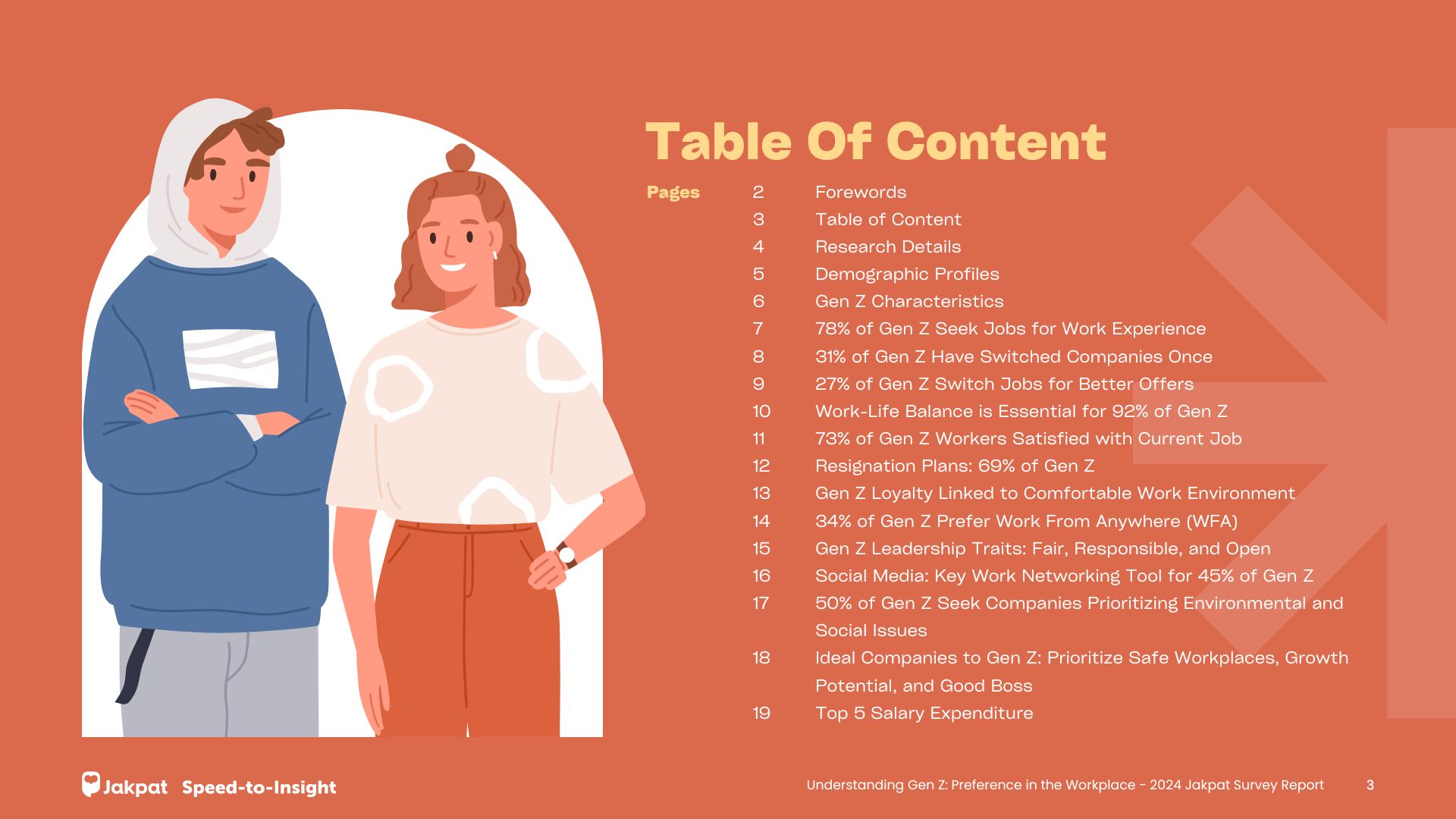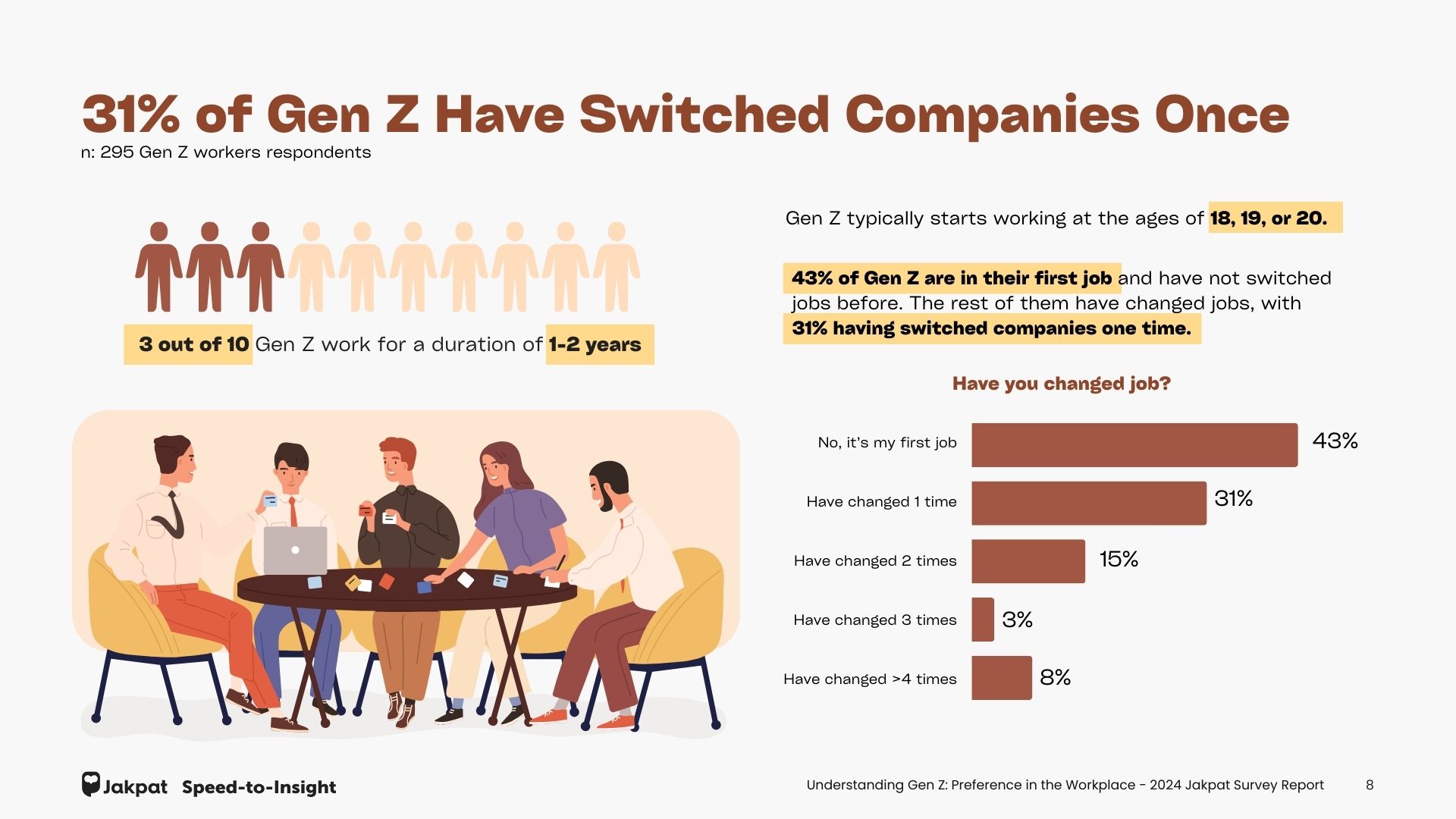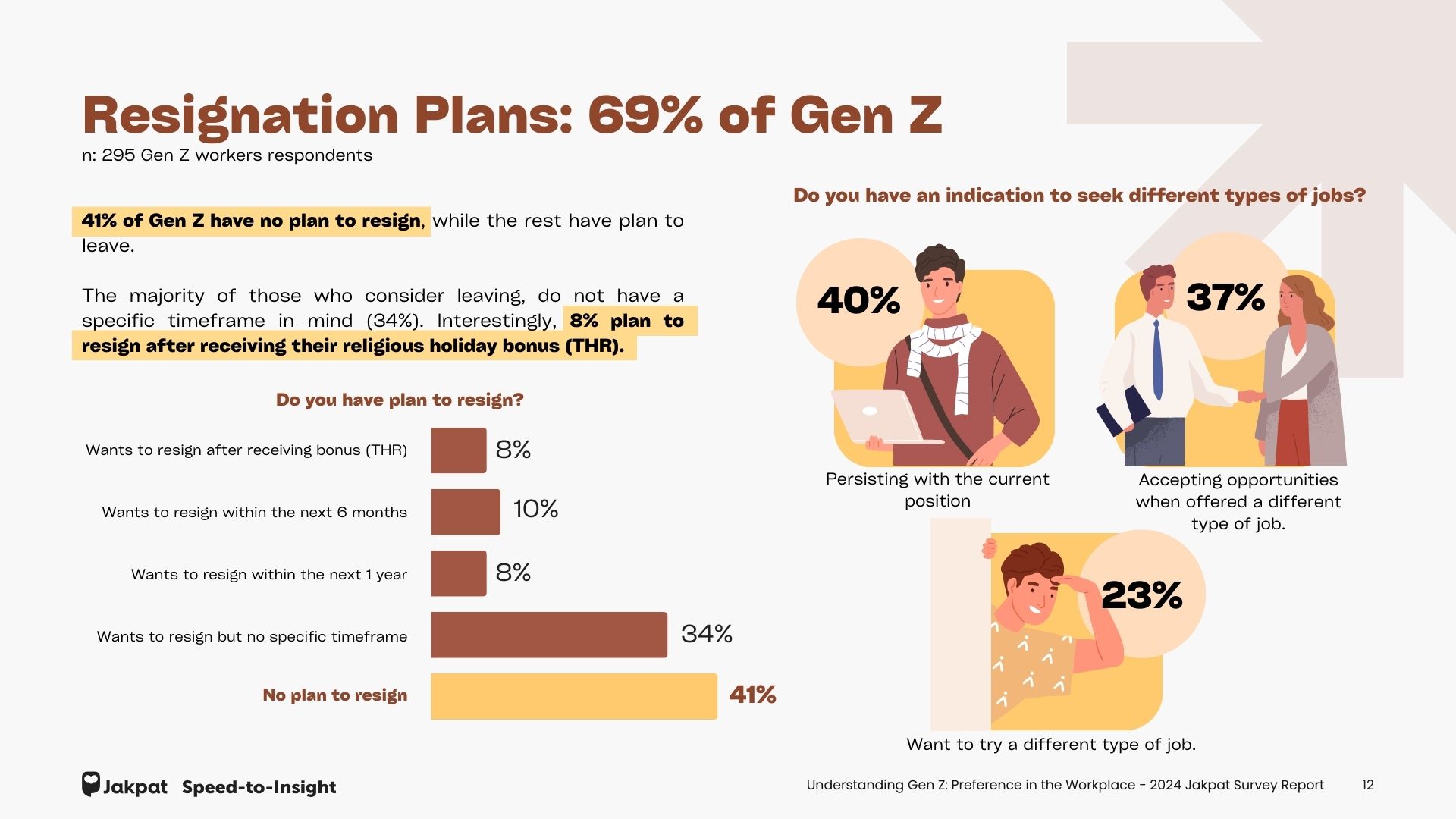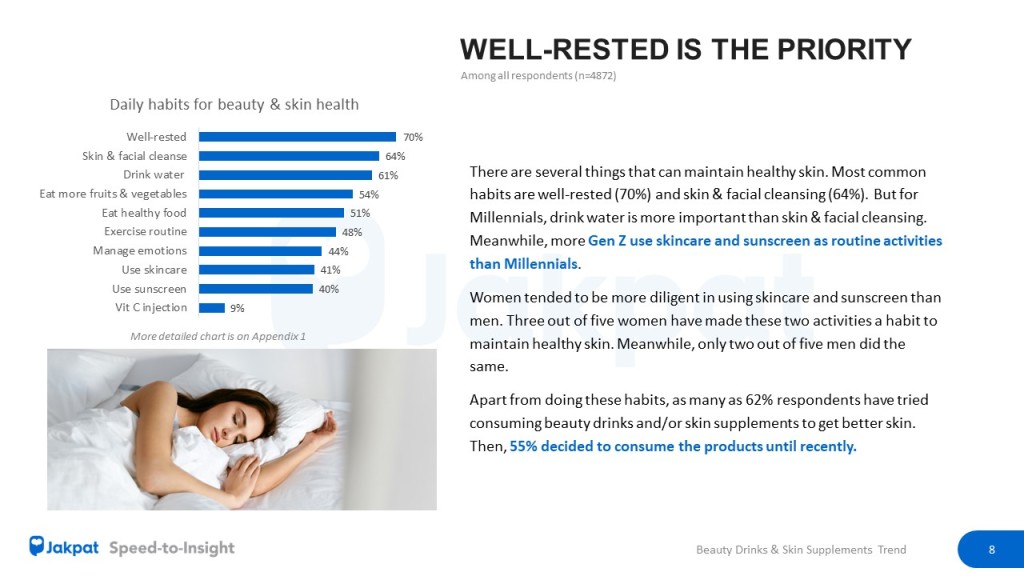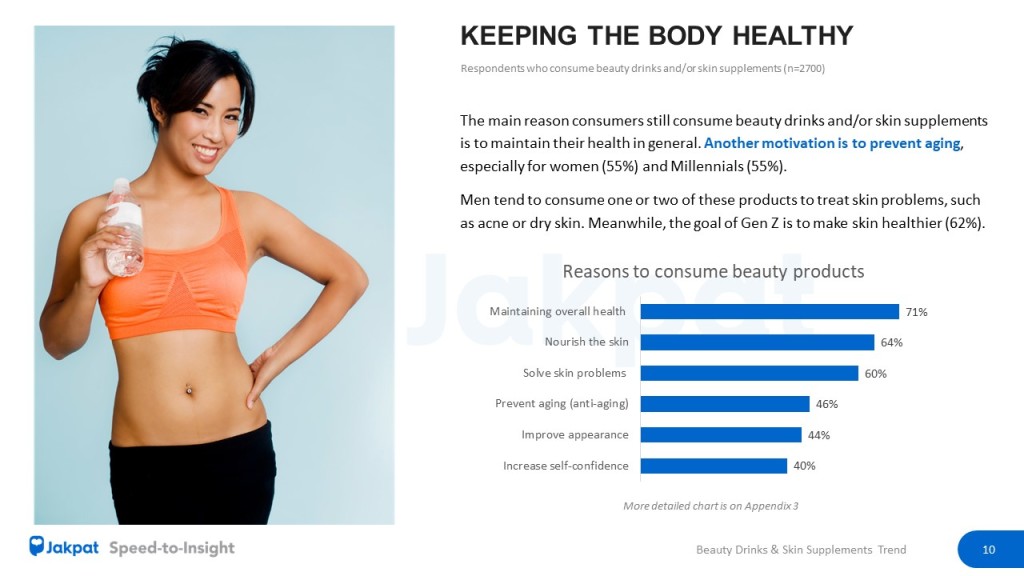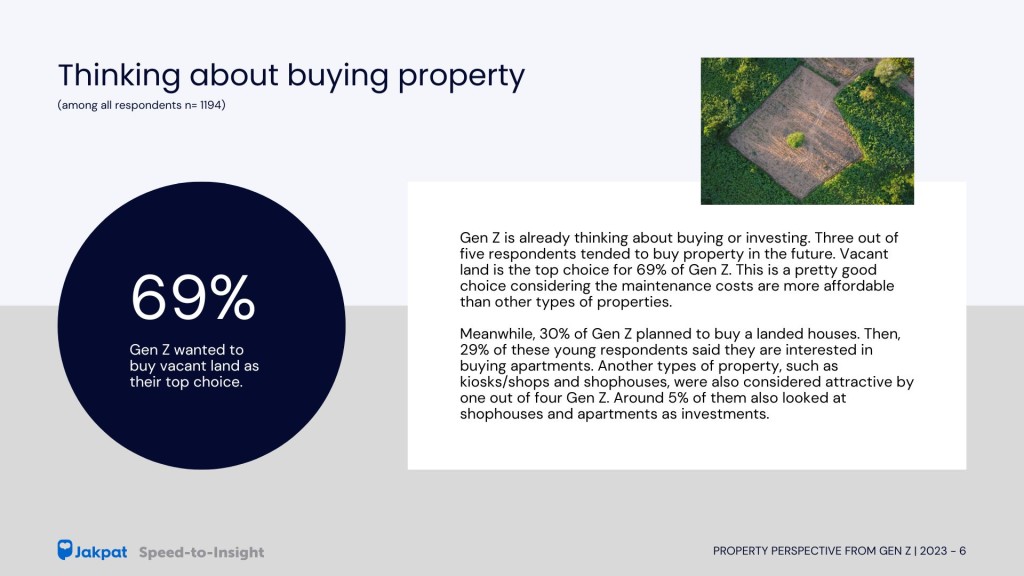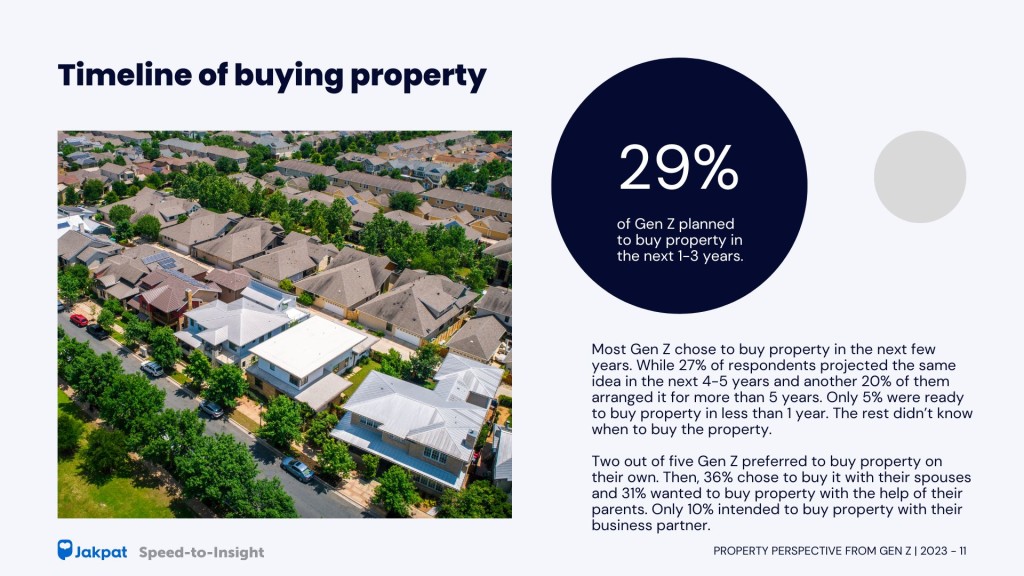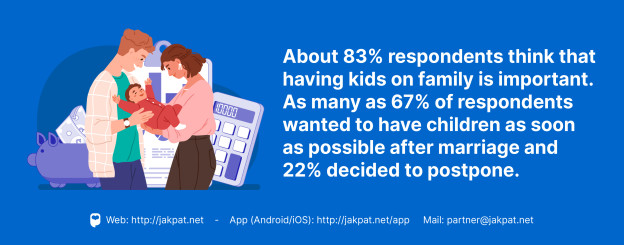Generation Z is currently busy with various activities, such as pursuing education and advancing to higher levels of study, and many have already entered the workforce. Understanding the preferences and work experiences of Generation Z (Gen Z) is crucial for companies in recruiting talented and loyal employees.
To understand the characteristics and preferences of Gen Z in the workplace, Jakpat has conducted a survey involving 1262 respondents, where 63% of them are Gen Z individuals who share their views and preferences related to the workplace.
In general, Gen Z begins entering the workforce at 18 to 20 years old. Among the respondents who are already working, 43% stated that their current job is their first job. Meanwhile, some others have changed jobs once (31%), and 15% have changed jobs twice.
The main reason for Gen Z deciding to leave their jobs is unsatisfied salary (41%). Along with their young age, getting more attractive job offers (27%) and wanting to explore other types of jobs (26%) are reasons for Gen Z to resign.
73% of respondents are satisfied with their current jobs. For Gen Z individuals who are satisfied with their jobs, it indicates their loyalty to the company. The majority of them have been working at the company for 1-2 years (31%), and 24% have been working for more than 2 years.
According to Septiana Widi Sugiastuti, the Research Lead at Jakpat, companies can adjust their recruitment strategies, employee development, and management to attract and retain talents from this demographic group. “In the workplace, Generation Z tends to prioritize a healthy work-life balance such as maintaining mental health. They are more likely to seek jobs that offer flexibility, such as remote work or flexible work schedules with satisfactory salaries,” she said.
Gen Z Preferences
In terms of work systems, 35% of Gen Z prefer Work from Anywhere (WFA) while 32% prefer a hybrid model that allows them to work remotely and in the office.
To create a comfortable work environment, it is important to pay attention to leadership styles that are suitable for Gen Z. The leadership style desired by Gen Z is fair (87%), responsible (77%), and open to feedback (70%).
Social media also plays an important role in the professional lives of Gen Z, where 45% of them use social media to expand their professional networks. Meanwhile, 37% use social media to build their personal brand.
Get the details on our report here.





